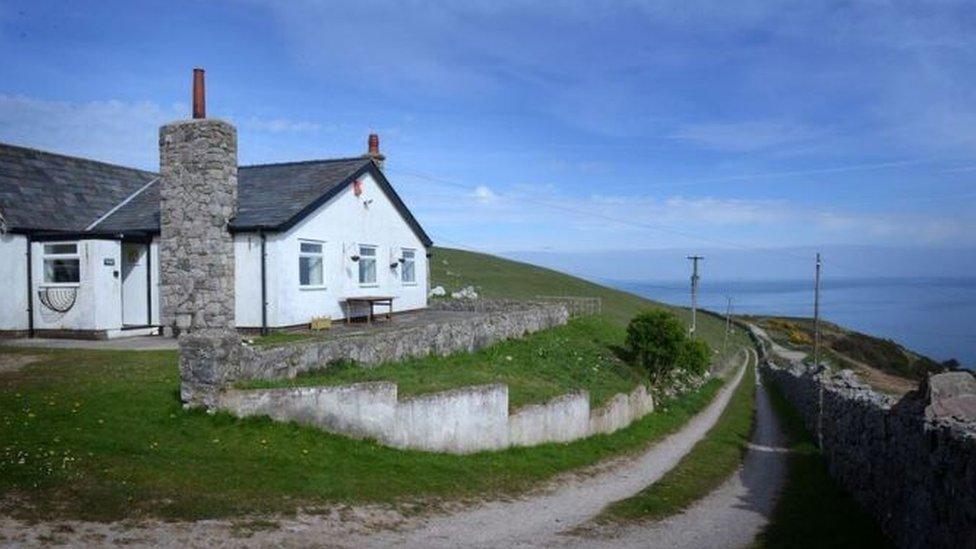Dairy farms fear impact of agricultural pollution rules
- Published
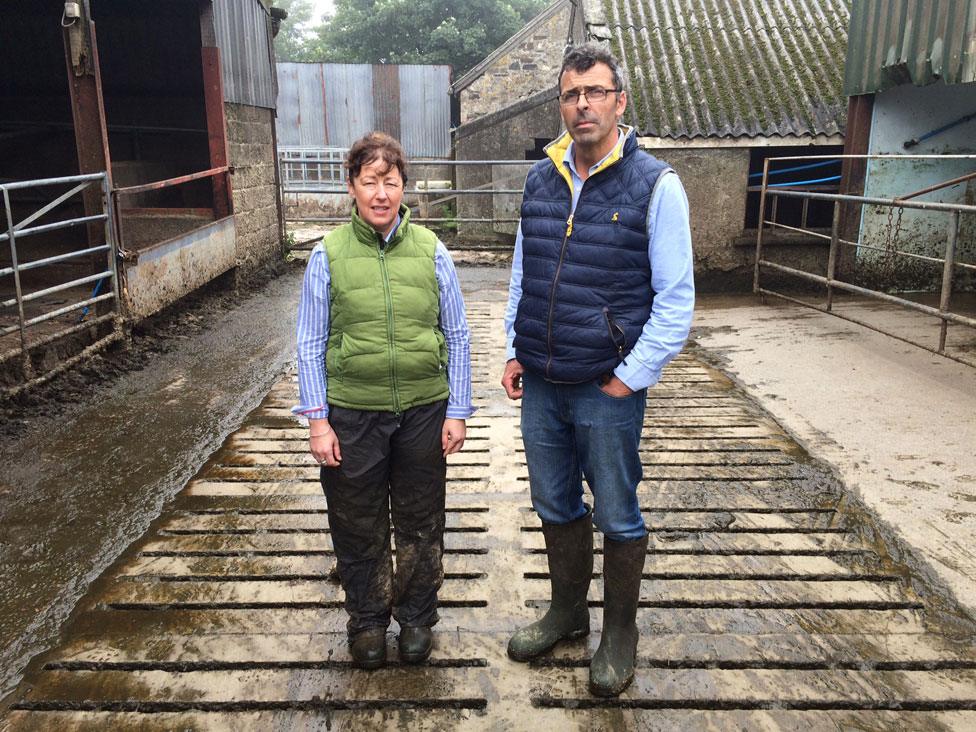
Elinor and Jeffrey Evans are worried about new rules on their dairy farm in Pembrokeshire
Farming unions have called on the Welsh Government to be clear about whether it plans to extend rules designed to tackle agricultural pollution.
Currently, so-called nitrate vulnerable zones (NVZs) cover only about 3% of land in Wales.
But they could be extended to a wider swathe of Pembrokeshire, parts of Carmarthenshire and Anglesey too.
Ministers said a consultation, which has been put off several times, would "probably" be launched in September.
NVZs are areas designated as being at risk from agricultural nitrate pollution.
The rules, designed to improve water quality in rivers and lakes, mean farmers in affected areas would face tougher restrictions on fertiliser and manure spreading.
The Farmers' Union of Wales (FUW) has been raising the issue at the Royal Welsh Show near Builth Wells.
It said a "lack of information" is causing huge concern in those areas, with farmers delaying plans to invest and develop their businesses.
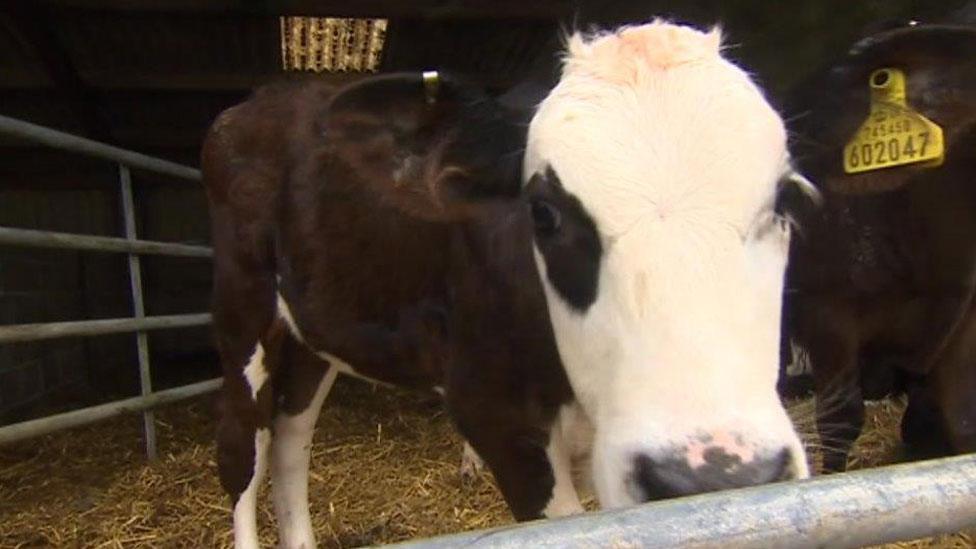
Rebecca Voyle, FUW county executive officer for Pembrokeshire, told BBC Wales that new NVZs had been talked about "for a good 12 to 18 months".
"Various different dates have been given for a consultation to be issued and yet people are still waiting to see what's going to happen," she said.
It has been reported that new designations being considered could draw in half of Wales' potato growing areas as well as 25% of all land used for milk production.
Ms Voyle added: "We're in a big dairying area and lots of farms here would need to increase their slurry storage capacity. We're talking hundreds of thousands of pounds worth of work on some farms to get to the standards that they would need to have."
A depression in milk prices coupled with the challenges of bovine TB facing dairy farms in the area means there is "very little spare cash within the system".
She said the rules, if imposed, would inevitably lead to some farms going bust.
That is the fear at Broadmoor Farm, a county council holding near Wolfscastle, Pembrokeshire, where Jeffrey and Elinor Evans are currently able to store slurry for about four weeks in their existing pits.
"To be able to invest about a hundred thousand in a new slurry system is not on our radar at the moment," Ms Evans explained.
Farmer Elinor Evans tells BBC Wales environment correspondent Steffan Messenger that the changes could have a big impact.
'Last straw'
"Our contingency fund has been totally wiped out with just trying to survive the low price that we've had for milk for the last year. It's only one way our cash is going and the banks are starting to get concerned.
"It could be the last straw for us but also for the local companies who rely on us for our business."
Environmental campaigners argued that the rules are important to prevent water courses from becoming polluted with high levels of nitrate washed into rivers and streams from farmland when it rains.
Farmers would argue that theirs is only one of many sectors affecting water quality.
The FUW said there had not be an increase in nitrate levels in the Pembrokeshire area in recent years and that farmers were managing their slurries and manures in a "much better way" without the need for extra regulation.
Lesley Griffiths, Cabinet Secretary for the Environment and Rural Affairs, told BBC Wales she was committed to a consultation on new NVZ designations, saying it would be launched "probably in September".
The Welsh Government had previously said that funding would most likely be made available to help farmers comply with the rules.
- Published18 July 2016
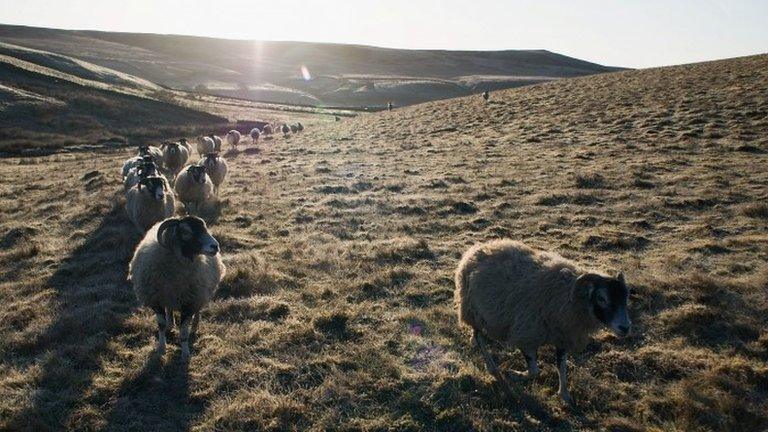
- Published4 July 2016
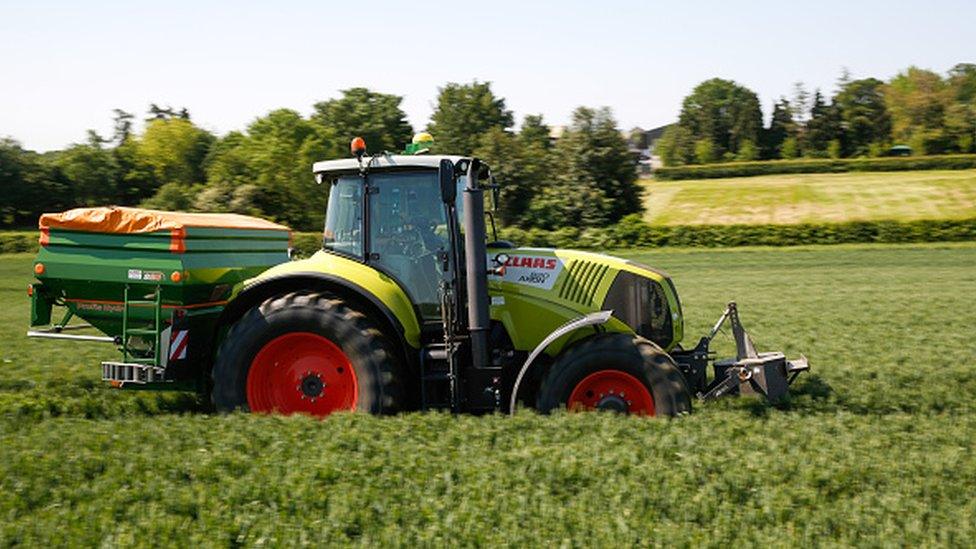
- Published14 October 2014
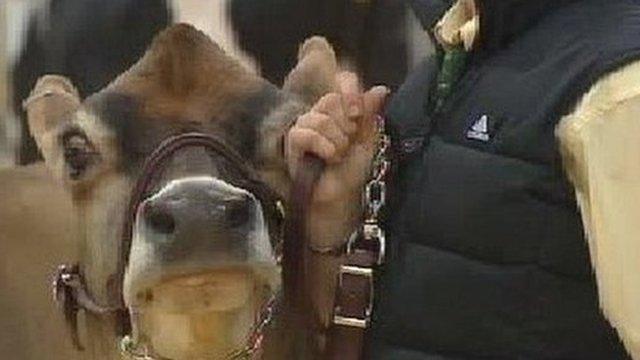
- Published12 July 2016
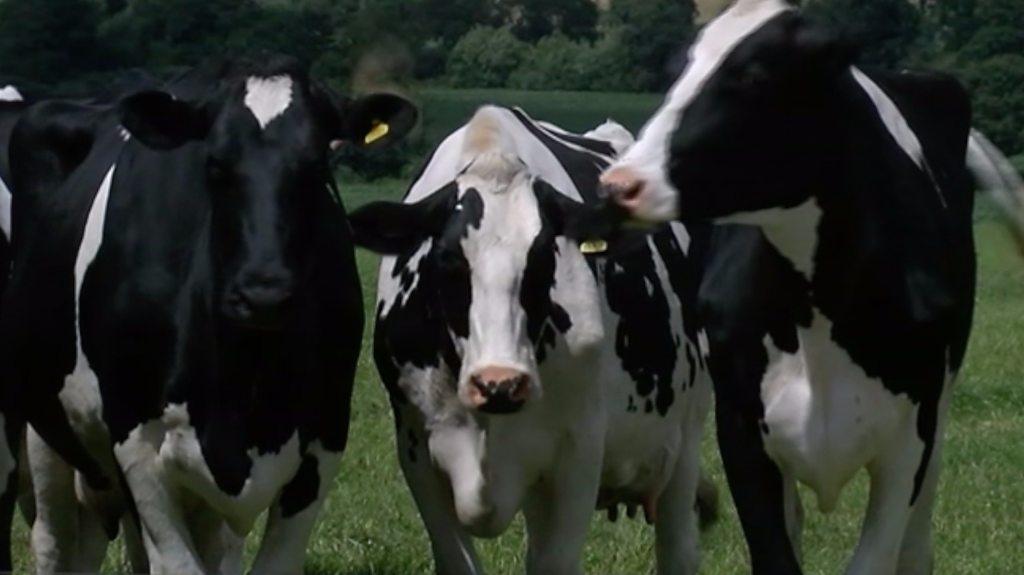
- Published24 May 2016
